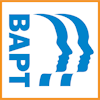BY ROB TOOMEY
 Thinking back 20 years, it is hard to imagine that we would witness the recent explosion of mainstream interest in the topic of personality type. Sites like 16personalities.com and truity.com have millions of users each month seeking to learn basic principles of the Jung/Myers framework. 16personalities alone has had more than 344 million people complete their program, with a dramatic acceleration of usage during the pandemic.
Thinking back 20 years, it is hard to imagine that we would witness the recent explosion of mainstream interest in the topic of personality type. Sites like 16personalities.com and truity.com have millions of users each month seeking to learn basic principles of the Jung/Myers framework. 16personalities alone has had more than 344 million people complete their program, with a dramatic acceleration of usage during the pandemic.
And yet, this surge in interest has not meaningfully intersected with any of the well-established global communities of psychological type experts, including BAPT. I believe this leaves us with a conundrum: how can global type experts enrich and advance the proper application of typology within this growing mass of people? With hundreds of millions of people raising their hand to indicate their interest in learning, how can we effectively and ethically share the collective knowledge and wisdom safeguarded within the international type community?
I do not believe there are easy answers to these questions, however I do believe:
- There is enormous value that the type community can and should seek to share with the mass of people who currently have just enough information to be dangerous.
- We should be considering the likely harm to the perceived value, relevancy and validity of typology to have so many people who are provided with the incorrect 4 letter type through these sites – and what we might do as a community to address this issue.
- That with sufficient creativity and curiosity, we can find ways to engage with this new audience and shift the commonly-held beliefs that:
- A free question-based quiz can correctly identify someone’s 4 letter code
- There is no need or benefit in additional clarification around one’s best-fit type
- Knowing one’s 4 letter code is the end of the journey (when we all know that it is merely the beginning)
- Type is not an amusing parlour game, but a foundational element in allowing our best selves and lives to emerge.
- That if we act now and with vigour, we can, in some time period less than 20 years, make a meaningful impact on the lives of millions of people by allowing them to leverage the insights offered by personality type in virtually all aspects of their lives.
Some of our answers likely lie in technology since the sheer scale required to meaningfully engage with this number of people will require it. However, as we have seen through the pandemic, the world has embraced new mediums of communication and learning (Zoom, etc.) that can be leveraged in new ways. Some of our answers will likely require the type community to rethink how it has traditionally disseminated information – not technologically speaking, but substantively speaking. How can we re-shape the delivery of our knowledge in such a way as to be dramatically more digestible and applicable to new learners – learners who may not have the time to devote to a theory-based approach or the appetite to learn in the traditional manners. For example, might we as a community consider emphasizing applications of type to commonly faced day-to-day challenges while de-emphasizing things like the hierarchy of functions (at least for introductory level learning)?
My hope in raising this topic here and during my session at the BAPT Annual Conference is to initiate a dialogue that may take years to complete but which I believe is worthwhile for the reasons above. I look forward to hearing what additional concerns, ideas or suggestions you have!
About the Author
 Rob Toomey (ENTP) is the President of TypeCoach (www.typecoach.com), which offers online tools for type practitioners to use with their clients to improve communication among teams, salespeople and leaders. Over the past 16 years, Rob has delivered live and virtually, facilitated sessions to more than 50,000 participants. A proud supporter of BAPT, Rob keynoted the 2014 Conference in Greenwich and, along with his sister, contributes the Two Peas in a Pod cartoon series for BAPT’s TypeFace magazine. Email: rob@typecoach.com.
Rob Toomey (ENTP) is the President of TypeCoach (www.typecoach.com), which offers online tools for type practitioners to use with their clients to improve communication among teams, salespeople and leaders. Over the past 16 years, Rob has delivered live and virtually, facilitated sessions to more than 50,000 participants. A proud supporter of BAPT, Rob keynoted the 2014 Conference in Greenwich and, along with his sister, contributes the Two Peas in a Pod cartoon series for BAPT’s TypeFace magazine. Email: rob@typecoach.com.

